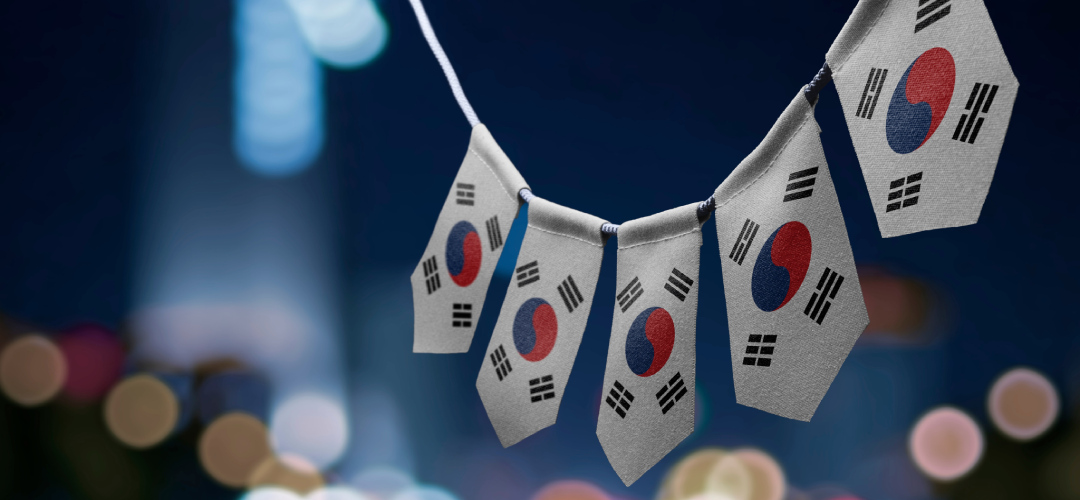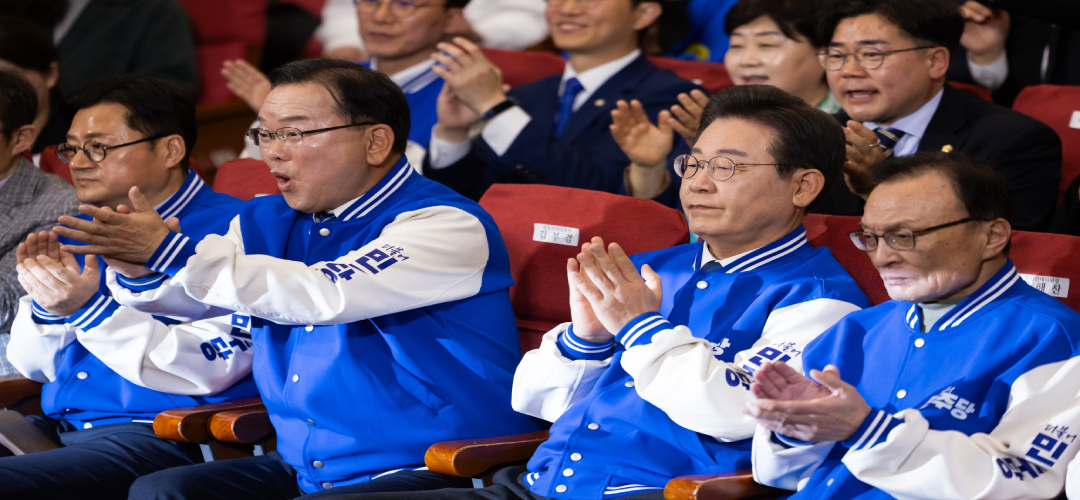Signs of Change?
April 20, 2024 | Expert Insights

On April 10, South Korea conducted its 22nd general election, marking a pivotal moment in its democratic journey. The election, involving all 300 seats of the unicameral National Assembly, was not just a routine political event but served as a significant referendum on President Yoon Suk Yeol’s leadership midway through his term.
With a robust voter turnout of 67 per cent—the highest in 32 years—the results spelt a clear challenge to President Yoon's administration, as the opposition Democratic Party (DP) gained a commanding majority.
Background
Historically, South Korean elections have often been a barometer for the incumbent administration's popularity and policy effectiveness. This election, where the opposition Democratic Party (DP) won 175 seats against the ruling People Power Party's (PPP) 108 seats, clearly reflects a public call for change, particularly critiquing President Yoon Suk Yeol’s policies on domestic welfare and economic management.
South Korea's political landscape has seen frequent fluctuations in party dominance, reflecting the electorate's reaction to governance and policy outcomes. The emergence of the Rebuilding Korea Party (RKP), which captured 12 seats, mainly through proportional representation, also indicates the evolving nature of political representation. There is a clear public alignment with more diversified political viewpoints, especially in response to specific issues like justice and reform, hallmarks of the RKP platform under Cho Kuk.
This electoral outcome underscores not just a reshuffling of political power but also points towards probable legislative gridlock. With the DP holding a majority, significant roadblocks are anticipated for President Yoon's key initiatives, such as increasing housing supply, adjusting greenbelt restrictions, and pushing major infrastructure projects. These developments resonate with past trends where shifts in legislative control have led to policy stagnation and heightened political manoeuvring, including potential impeachment threats against key figures in the administration.

Analysis
Domestically, the election results signal a clear mandate from the electorate for a change in policy direction. This is even more relevant in areas directly impacting citizens' daily lives, such as housing, environmental policy, and large-scale infrastructure projects.
With the DP holding a majority in the National Assembly, President Yoon's key policy initiatives—such as increasing the housing supply, relaxing greenbelt restrictions, and advancing significant infrastructure developments—may face considerable obstacles. These sectors, crucial for economic stability and growth, will likely become contentious battlegrounds where the opposition could leverage its legislative power to reshape or stall the administration's proposals.
Moreover, the DP's strengthened position may embolden the opposition to initiate political manoeuvres, including impeachment proceedings against high-profile figures in the Yoon administration. Such political strife, arising from a more confrontational legislative environment, could exacerbate the already contentious political landscape in South Korea, complicating the path to effective governance and policy implementation.
The public’s dissatisfaction with the rising cost of living and perceived economic mismanagement under President Yoon's administration has been a central issue. The DP has criticized policies aimed at stabilizing prices of essential goods and the controversial increase in medical school quotas, which have been unpopular among voters. As a result, the new majority may initiate reforms to counteract these policies, thereby steering the economic agenda towards more populist measures.
Furthermore, the election underscored the electorate's growing concerns over social issues, such as gender rights, minority protection, and employment reforms. With the National Assembly now tilted towards a more progressive stance, it is likely that these issues will see a renewed focus. This could lead to substantial legislative initiatives aimed at enhancing social justice and equality. Such changes could significantly alter the social landscape of South Korea, reflecting the progressive priorities of the DP's legislative agenda.
On the international stage, while South Korea's foreign policy is expected to maintain its current trajectory due to the executive branch's predominant influence in this area, the electoral outcome could still introduce new dynamics. President Yoon’s administration has been characterized by a strong alignment with the United States, emphasizing regional security against North Korean provocations and enhancing the trilateral relationship with Japan. However, with the DP's ascent to power, there may be increased scrutiny and critique of Yoon’s handling of relationships with key regional players, particularly China and Japan. The DP has occasionally adopted a more neutral stance on sensitive issues like the Taiwan Strait and has voiced criticism of the administration’s proactive support for Ukraine, signalling potential friction points in foreign policy discussions.
The DP's critical stance could influence the broader foreign policy debate within South Korea, potentially leading to a more nuanced or diversified approach to international relations. This could affect South Korea's position on global diplomatic platforms and its interactions with major powers, particularly in how it manages its strategic autonomy while aligning with U.S. regional interests. While the core of South Korea's foreign policy may remain stable, the nuances of its implementation could see adjustments as the new legislative majority seeks to imprint its perspective on national and international issues.
Assessment
- The 22nd general election in South Korea has not only reshaped the legislative landscape but also set the stage for a tumultuous period in both domestic and foreign policy arenas. As the DP takes the majority, the interplay between the legislative and executive branches will be crucial. s
- How President Yoon navigates this divided government will be critical in determining his administration’s success and legacy.
- Meanwhile, the voters' clear call for change and reform signals a dynamic period ahead for South Korean politics as the nation continues to grapple with pressing domestic challenges and its strategic position on the global stage.








Comments